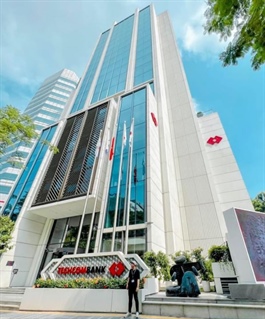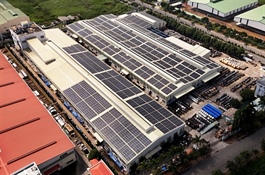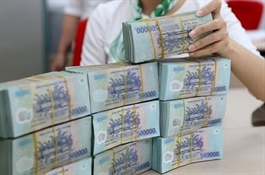Vietnamese banks standing strong although risks remain
Vietnamese banks standing strong although risks remain
Vietnam’s banking sector has been a key facilitator as well as beneficiary of the country’s robust economic growth. We forecast total system outstanding loans to double by the end of this year relative to five years ago. This makes Vietnam the second-largest banking system in ASEAN by assets, ahead of other larger and higher-income economies.

Willie Tanoto, senior director APAC Financial Institutions Fitch Ratings |
Rapid business volume growth has led to buoyant profits, which enable banks to accrue capital and reinvest in expansion. This is also fortified by state-owned banks reducing dividend payments in cash and many joint-stock banks raising additional capital from the equity market.
Improved capitalisation has led to the upgrade of the standalone assessment of several banks in recent years, such as Agribank in 2023 and Military Bank in 2024. The outlook on the capitalisation scores of Agribank, VietinBank, Sacombank, and Nam A Bank continue to be positive today, which has the potential to lead to further standalone credit rating upgrades at some of them if improvements are sustained.
The past few years of good financial performance, favourable business prospects and an improved regulatory framework prompted us to raise our assessment of the banking sector’s operating environment score twice, in 2021 and 2023. This sector assessment is enhanced by Vietnam’s strong economic performance.
Asset quality risks have been manageable considering the numerous challenges banks have faced, with the authorities’ propensity to support the economy and the sector playing a significant role in such resilience.
In our view, financial transparency and disclosures have improved compared to a decade ago. This comes as more banks are publicly listed and as the State Bank of Vietnam (SBV) requires banks to publish and provision for problem credits more transparently.
Yet, loan growth has accelerated significantly recently to support the government’s ambitious target of having GDP growth average 10 per cent over 2026-2030. The pace of credit expansion in the country has exceeded the pace of GDP growth every year in the past decade except in 2018. The authorities are also working on removing the annual credit quota system that has been in place since 2011, which is likely to cause credit growth to accelerate.
Credit was equivalent to 135 per cent of GDP at end-2024, which is much higher than the median of 53 per cent among sovereigns rated in the ‘BB’ rating category by Fitch. High leverage of borrowers is a source of vulnerability for banks in any future business downcycle.
Loans have also been channelled disproportionately to some sectors, such as real estate. This increases concentration risks, especially among certain banks eager to lend to a recovering sector, and could result in higher impairments if there are any new shocks.
We believe the quality of credit is more important than the quantity supplied. As leverage rises, its marginal utility diminishes. The planned removal of the credit quota has the potential to make the allocation of credit more market-driven and capital efficient.
It may also enhance policy transparency and credibility through a rules-based approach to give lenders and borrowers better business predictability. This is provided safeguards are in place to emphasise credit quality, and it is not simply new credit stimulus.
The SBV’s introduction in 2025 of updates to banks’ regulatory capital framework could encourage banks to deploy capital more efficiently. Nevertheless, keen competition and relatively rigid interest rates continue to interfere with banks’ ability to adopt effective risk-based pricing.
Efforts to modernise Vietnam’s monetary policy toolkit are a welcome development. However, continued vigilance against runaway credit growth is necessary, especially given the large appetite for risks among Vietnamese banks. Banks’ capital buffers remain thin relative to regional peers, notwithstanding improvement in recent times.
The rating momentum of Vietnamese banks has been positive, but any major acceleration in credit growth can negate some of the progress banks have made.
- 09:00 27/08/2025
























